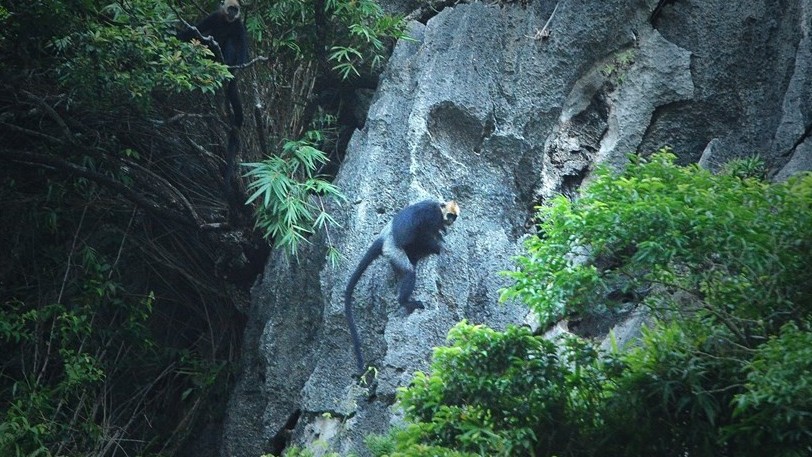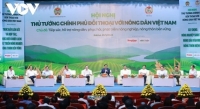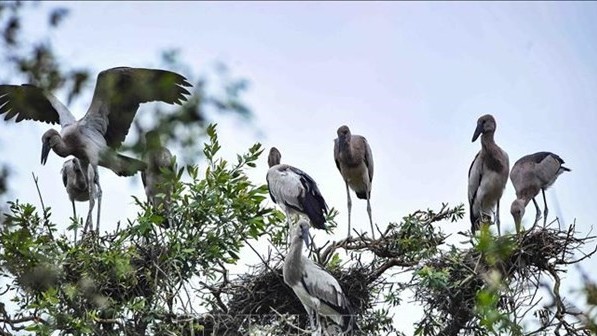
Workshop discusses solutions to eradicate treatments using endangered wild animals
Latest
 |
| Participants discuss innovative solutions to eradicate treatments using endangered wild animals and their derivatives at a workshop in Hanoi on June 8. (Photo: VNS/VNA) |
The event was jointly organised by TRAFFIC, a non-governmental organisation working globally on trade in wild animals and plants in biodiversity conservation and sustainable development, in partnership with the Vietnam Oriental Traditional Medicine Association.
The workshop provided participants with knowledge on the link and the impact of continued use of endangered species on social safety, public health risks, and conservation of wild species. The event featured a concerted discussion on feasible, comprehensive, and consistent measures that various actors in the TM system can apply.
"COVID-19 shines the spotlight on wildlife trade. More than ever, it's time to combat the illegal wildlife trade in the linkage with the public health sector.
Disease prevention is far more effective and less costly than disease control," said Dr Hoang Thi Hoa Ly, Chief of Office, Traditional Medicine Administration, Ministry of Health.
"We favour efforts to stop the unsustainable demand for wildlife species, particularly for medicinal purposes, as a proactive and preventive means to future zoonotic spread. It also aligns with the national TM strategy where the use of TM natural ingredients must not threaten the ecosystem and the population of wild fauna and flora."
Participants agreed that the balance with nature is a key point of the TM sector, and the use of endangered animals for medical purposes is against nature. The alternative is the wise approach to shaping and sustaining the new healthcare habits. On the other hand, collapsing wildlife trade and consumption systems is an integral response to future pathogen spread and zoonoses.

| Dialogue with farmers: PM requests solutions removing obstacles to agricultural production |
Dr Nguyen Van The, head of the Traditional Medicine Department under the Ministry of Public Security, called on TM practitioners and society to adopt scientific, effective, and sustainable health treatment practices.
"The continued use and prescription of various wild species, likely rhino horn, tiger products and pangolin scale, should be replaced by other available and even more effective TM ingredients. Vietnam’s traditional medicine is part of the country, but we should care for both human health and animals. If we continue using endangered species, it will damage our reputation," said The.
TRAFFIC Vietnam Office Director Nguyen Tuyet Trinh said: "TM practitioners have a huge influence on what patients choose to buy. I believe that most TM practitioners are willing to change their habits and switch to safe, legal and sustainable plant-based alternatives.
TRAFFIC is committed to helping accelerate this change by empowering the TM sector in taking concrete action to cut down the consumption of wild species in health treatments."
The workshop is part of the initiative to reduce the use of rhino horn as a medicinal remedy funded by the WWF Germany. Such efforts are crucial in sustaining the population of rhinos and other endangered species and the balance of the ecosystem.
While much of the crime involves the illegal use of rare materials such as ivory and rhino horn for social display or decorative purposes, another area that partly drives the illicit global wildlife trade is illegal wildlife products in traditional medicine.
The 2020 TRAFFIC consumer survey revealed that one out of four TM practitioners prescribed or recommended rhino horn, pangolin, or tiger products to patients in the past two years. Promoting wellness and treating illness are key drivers of use and purchase.




















